A small but growing number of Republicans have announced they will not vote for their party nominee, Donald Trump. Some have explicitly said they will vote for Democratic nominee Hillary Clinton, while others have simply declared that they will not back Trump.
Here are some of the prominent Republicans who have broken with tradition and said they won’t support Trump, while also withholding support for Clinton:
Sen. Ben Sasse
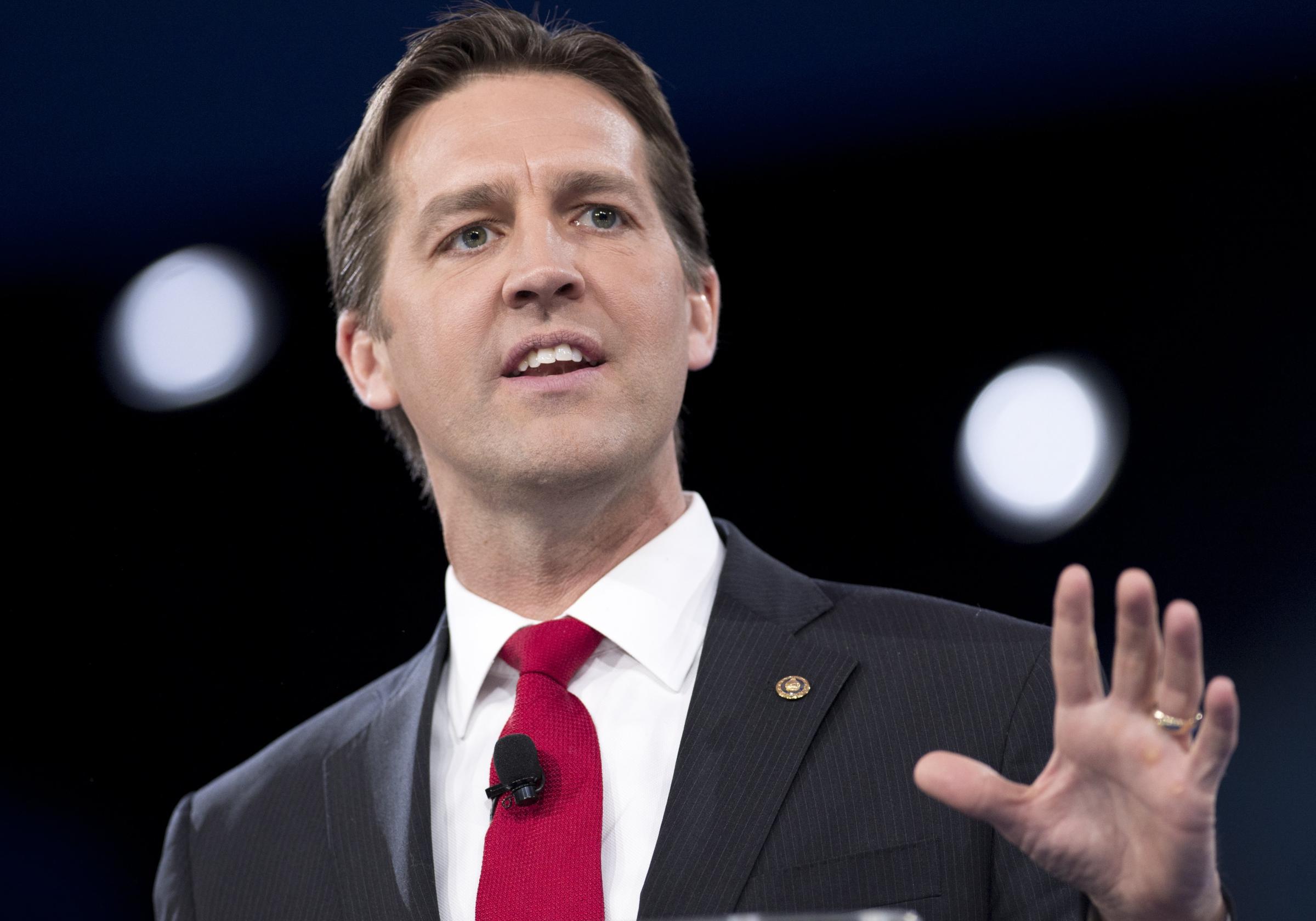
Sasse, who represents Nebraska, was among the most vocal proponents of the “Never Trump” movement throughout the Republican primary contests, and he continues to withhold his support for the nominee.
“I’m as frustrated and saddened as you are about what’s happening to our country. But I cannot support Donald Trump,” Sasse wrote in a letter to Trump supporters posted to Facebook in February. “I’m not an establishment Republican, and I will never support Hillary Clinton.”
Sen. Susan Collins
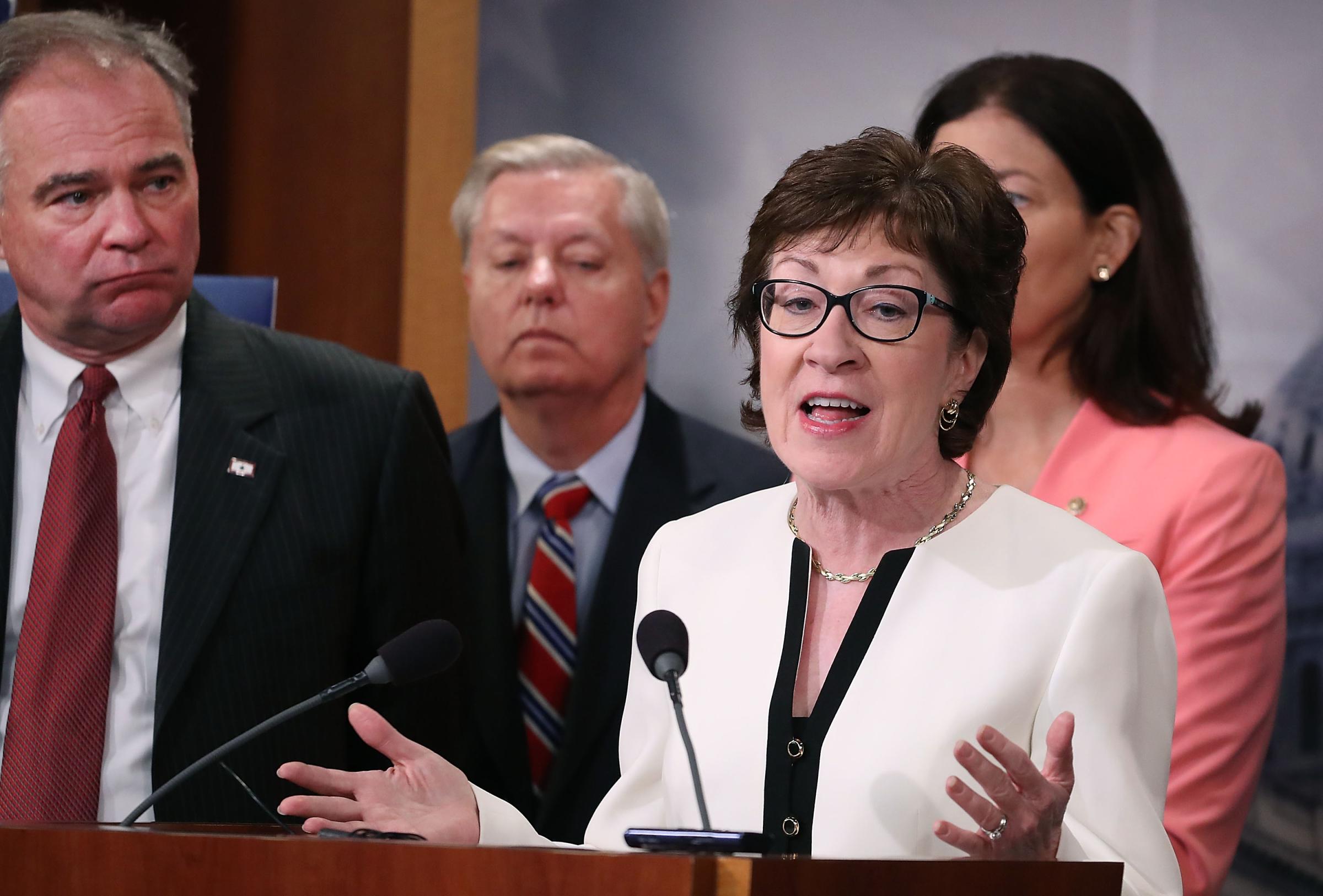
The Republican Senator from Maine said she will not vote for Trump, though she has not said which candidate she will support instead.
“With the passage of time, I have become increasingly dismayed by his constant stream of cruel comments and his inability to admit error or apologize,” Collins wrote in a Washington Post column published Aug. 8.
Collins is friends with Clinton and had voiced concern about Trump previously, noting that she needed to “wait and see what happened” before deciding if she would endorse him.
Rep. Scott Rigell
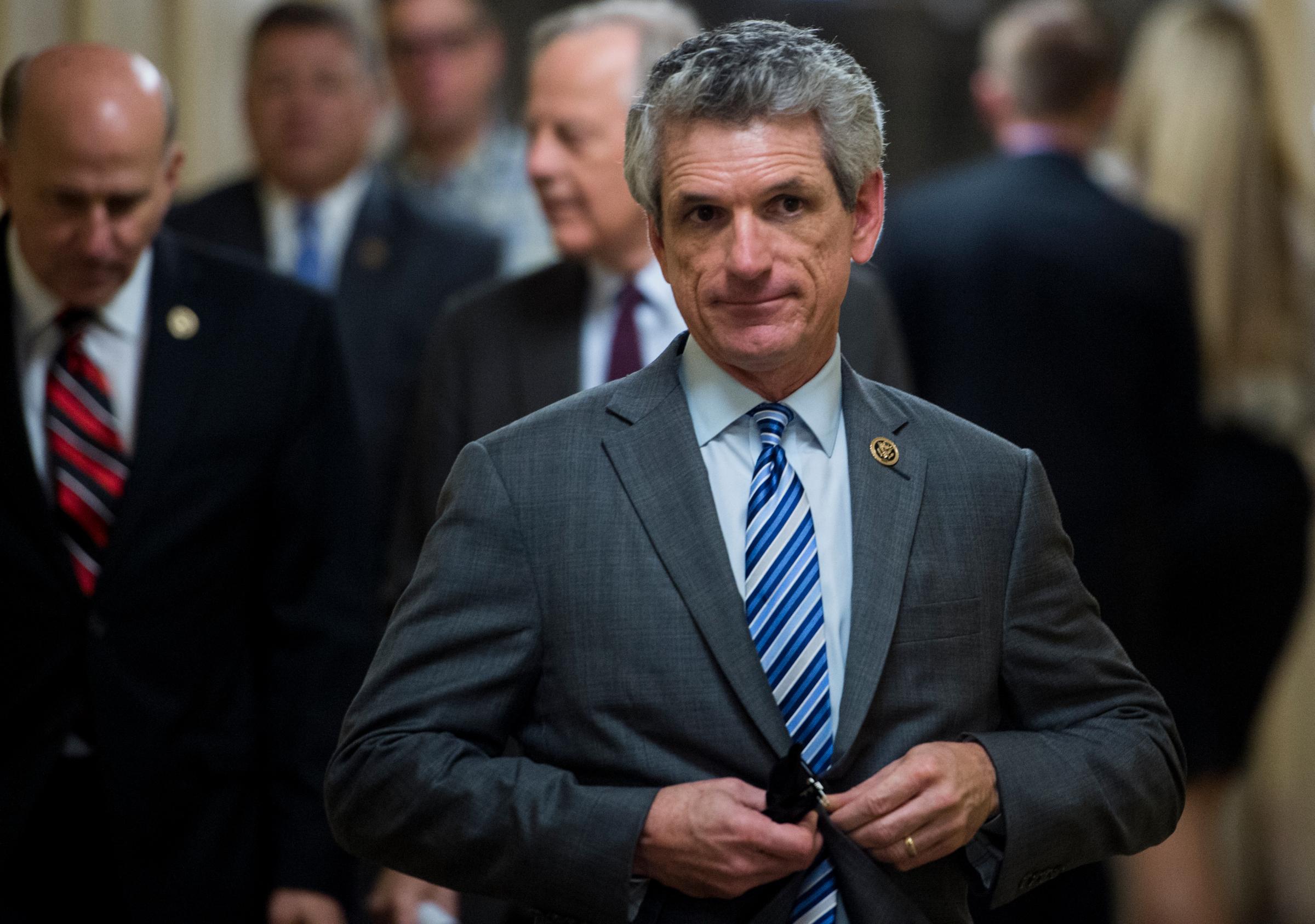
Rigell, who is retiring at the end of his term, became the first U.S. congressman to declare support for Libertarian Gary Johnson, speaking out in an interview with the New York Times on Aug. 5.
Rigell represents Virginia and had announced in March that he wouldn’t vote for Trump, but he had not yet endorsed an alternative candidate.
“I’ve always said I will not vote for Donald Trump and I will not vote for Hillary Clinton,” Rigell said in the interview. “I’m going to vote for the Libertarian candidate.”
Rep. Adam Kinzinger
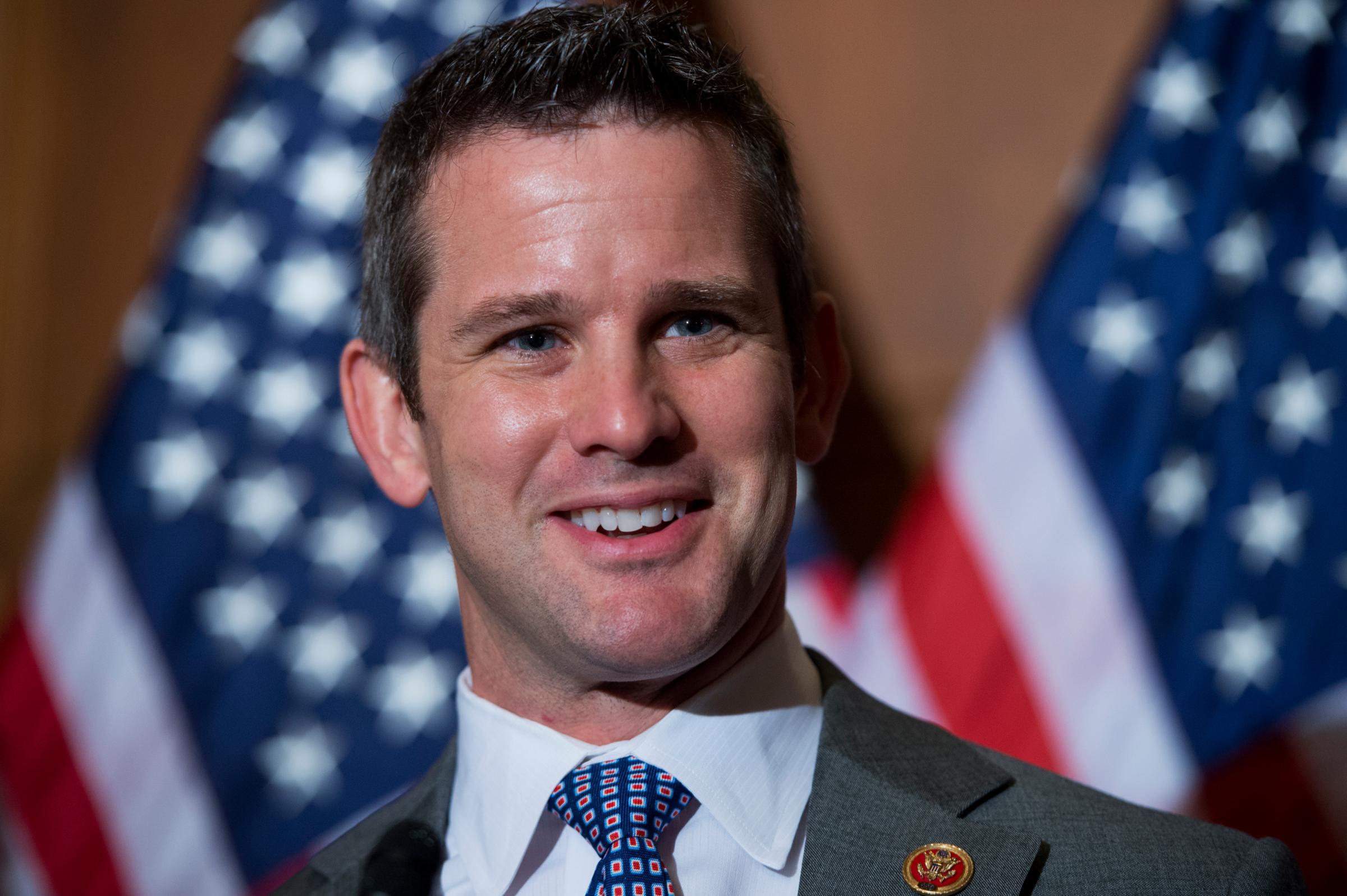
The congressman from Illinois said that while his intention had been to reach a point where he could support Trump, “I don’t see how I get there anymore.”
“I’m an American before I’m a Republican,” he said in an interview with CNN on Aug. 3. “I’m saying for me, personally, how can I support that? Because he has crossed so many red lines that a commander-in-chief or a candidate for commander-in-chief should never cross.”
Kinzinger said he won’t support Clinton, but will consider writing in a different candidate.
“And at some point, even if tomorrow he changed, and even if tomorrow he began to stick to the message and everything, I’m concerned that we’ve spent the last three or four weeks – frankly over the last year – getting a window into his soul.”
Marc Racicot
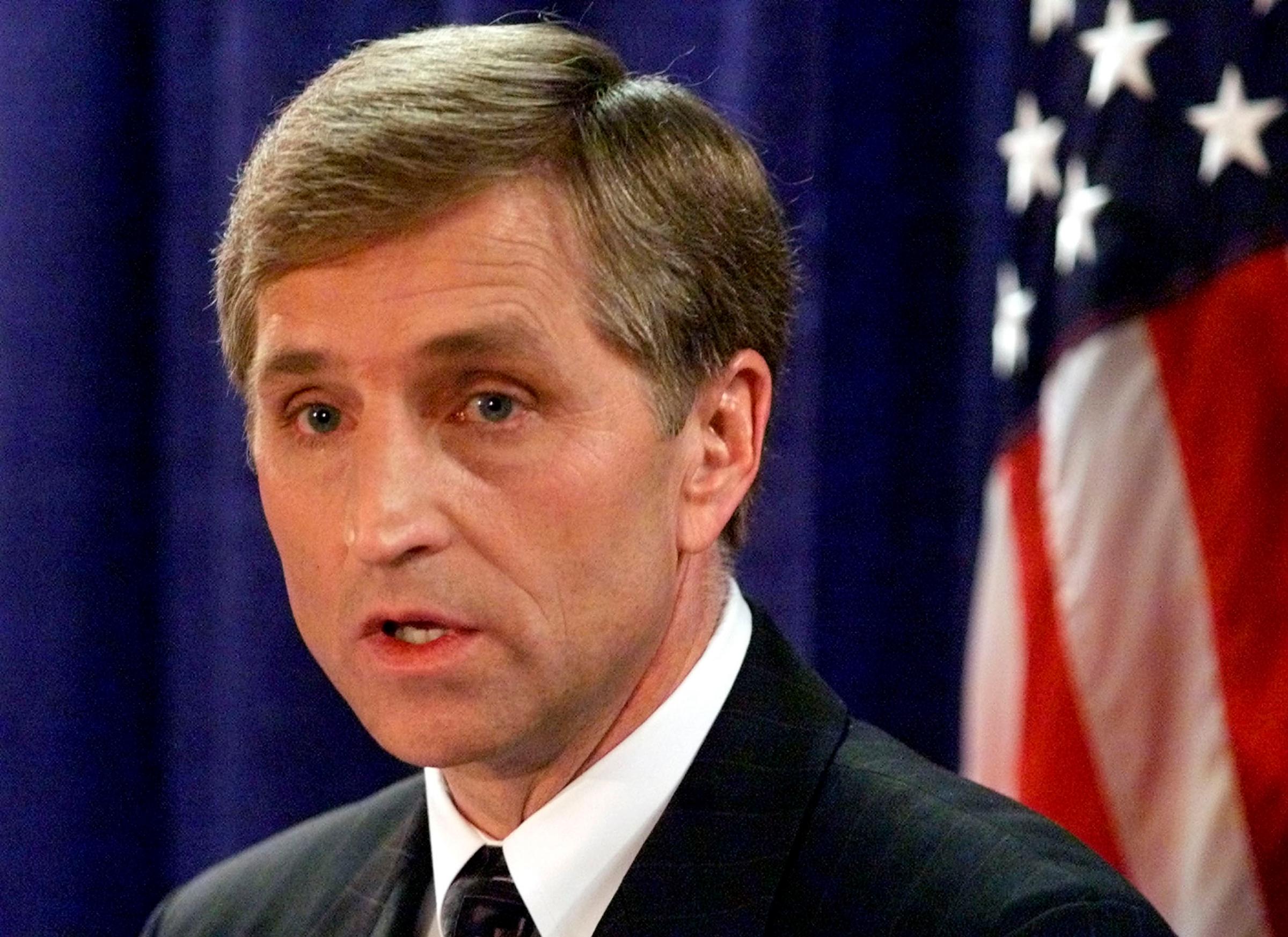
Racicot, a former Montana Governor and former Republican National Committee chairman, argued that Trump does not hold the “transcendent principles” necessary for the role of commander-in-chief.
“I cannot and will not support Mr. Trump for president of the United States,” Racicot said in an interview with Bloomberg on Aug. 3, adding that he’s not sure whom he’ll vote for and he won’t necessarily vote for Clinton.
“His policy proposals just simply don’t match up with the platform of the Republican party or conservative principles,” he said.
Gov. Charlie Baker
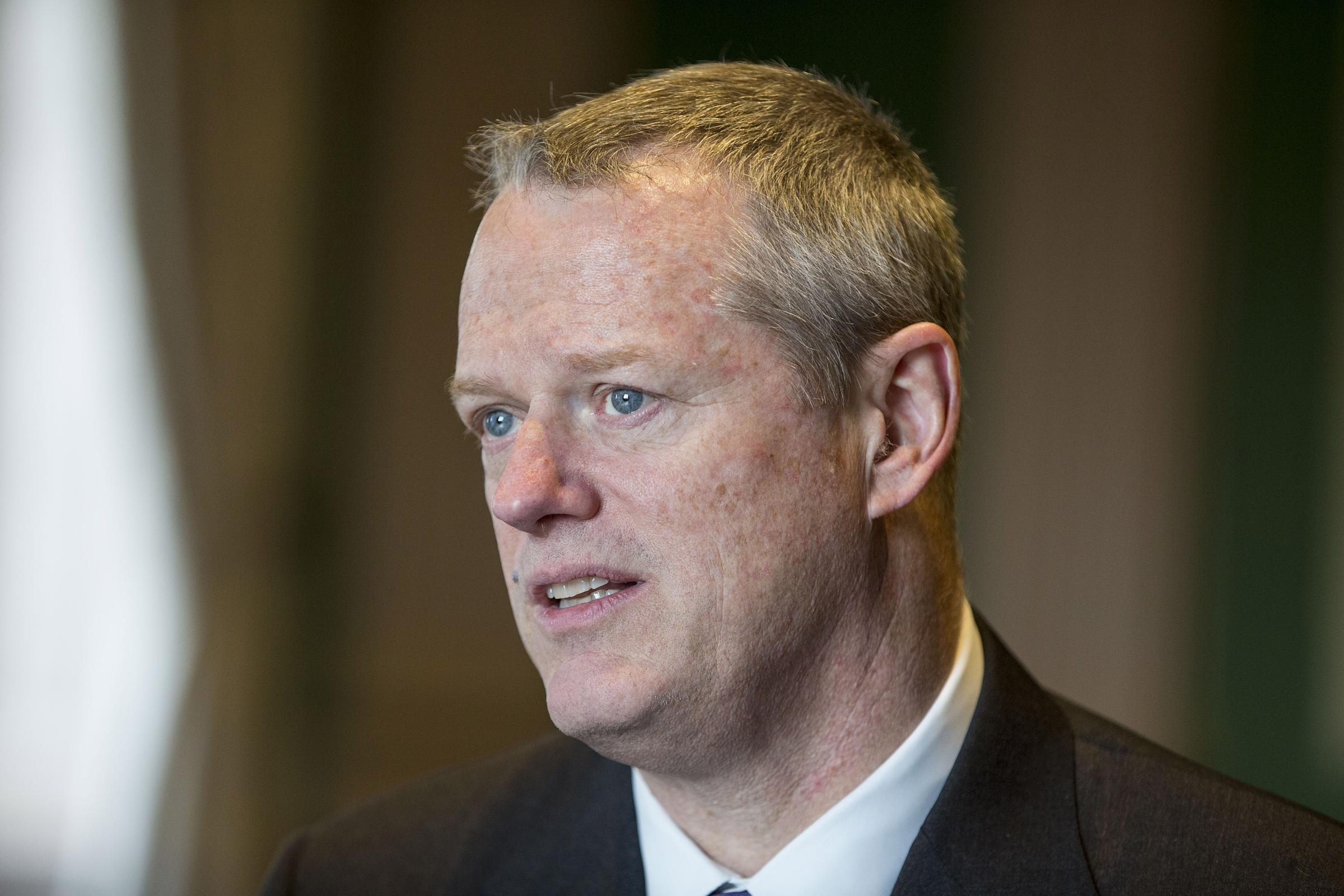
The Massachusetts Governor said as early as March 2 that he wouldn’t vote for Trump, who was at that point just the party’s front-runner.
“I’m not going to vote for him in November,” Baker said, after Trump won the Massachusetts primary, the Boston Globe reported.
Baker doubled down on that opinion in May, telling reporters that while Trump had earned the nomination “far and square,” he would vote for neither Trump nor Clinton.
“The things he said about women and Muslims and religious freedom, I just can’t support,” Baker said, according to boston.com. “At the same time, I do believe Secretary Clinton has a huge believability problem.”
Sen. Mark Kirk
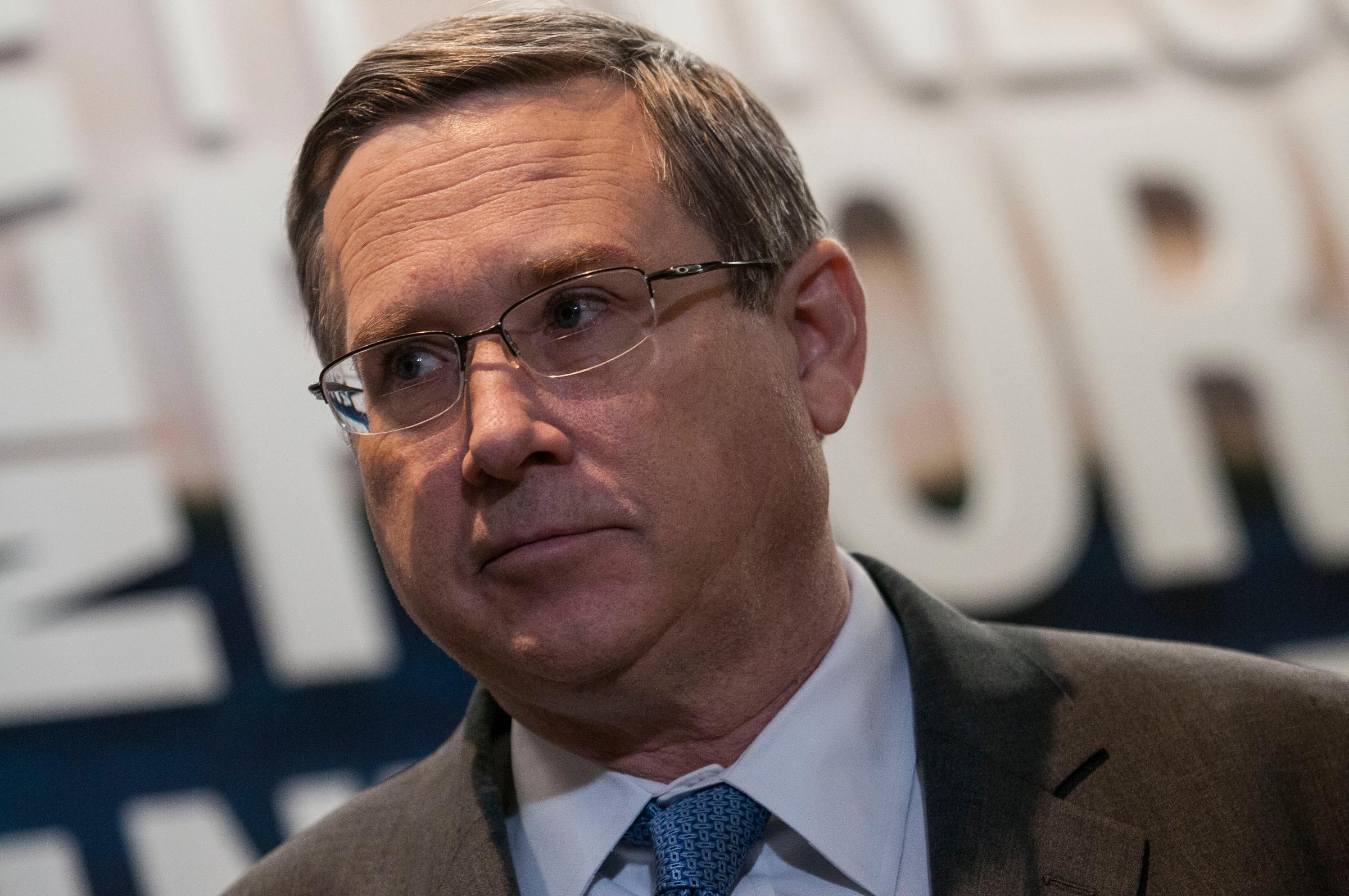
The Republican Illinois Senator said on Aug. 10 that he intends to write in former Secretary of State Colin Powell when he casts his vote for president in November.
In an interview with CNN on Aug. 10, Kirk reinforced his June announcement that he would not vote for Trump, calling the Republican nominee “too racist and too bigoted for the land of Lincoln.”
Kirk also said he would not vote for Clinton due to her support for the Iran nuclear agreement, calling her a bigger risk than Trump. Powell, however, defended the Iran nuclear agreement last year in an interview on NBC’s Meet the Press, calling it a “pretty good deal.”
Gov. Larry Hogan
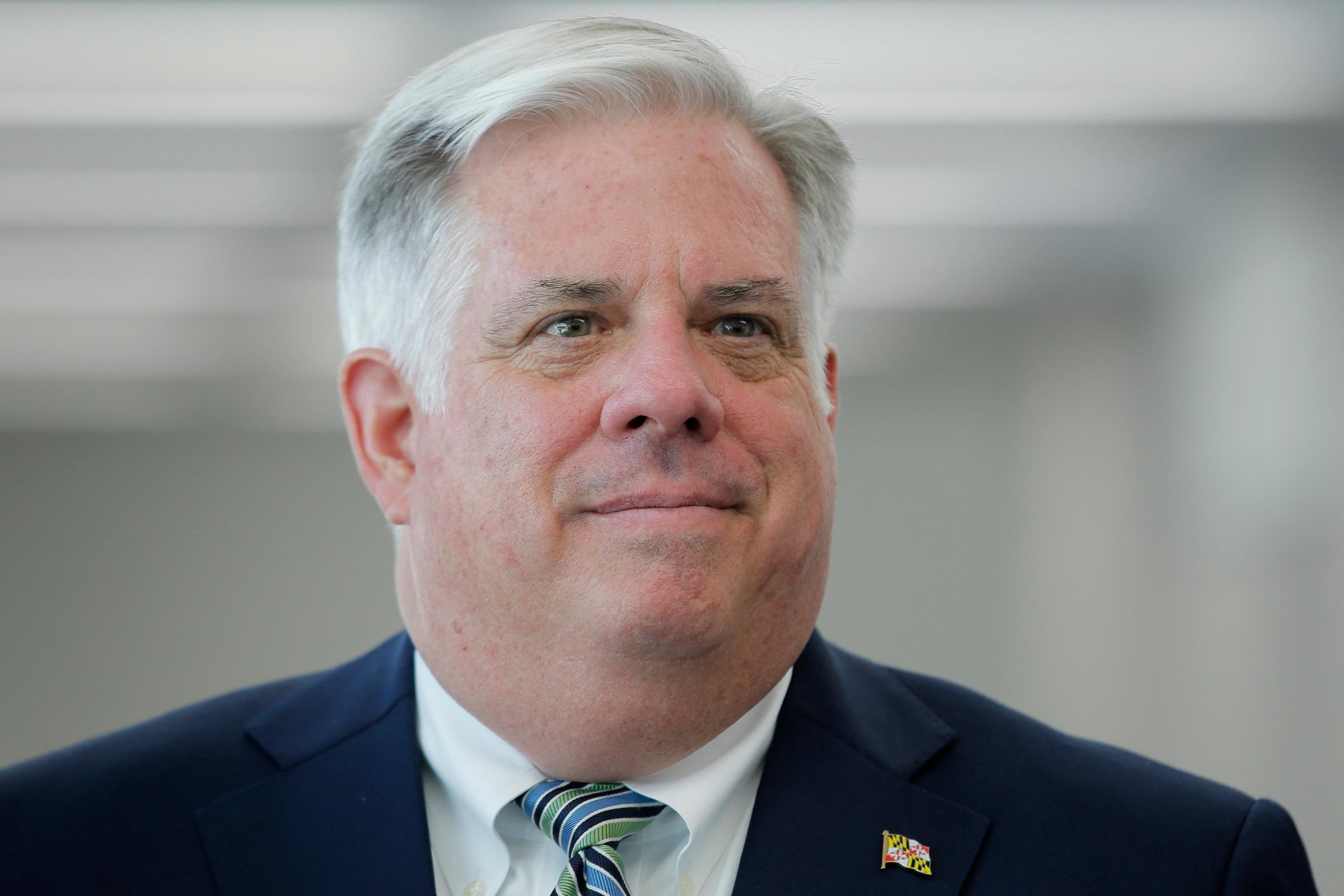
The Republican governor of Maryland said on June 15 that he would not vote for Trump in November, and he doesn’t know whom he’ll select instead.
“No, I don’t plan to,” Hogan told reporters when asked if he would vote for Trump, the Washington Post reported. “I guess when I get behind the curtain I’ll have to figure it out. Maybe write someone in. I’m not sure.”
More Must-Reads from TIME
- Donald Trump Is TIME's 2024 Person of the Year
- Why We Chose Trump as Person of the Year
- Is Intermittent Fasting Good or Bad for You?
- The 100 Must-Read Books of 2024
- The 20 Best Christmas TV Episodes
- Column: If Optimism Feels Ridiculous Now, Try Hope
- The Future of Climate Action Is Trade Policy
- Merle Bombardieri Is Helping People Make the Baby Decision
Write to Katie Reilly at Katie.Reilly@time.com